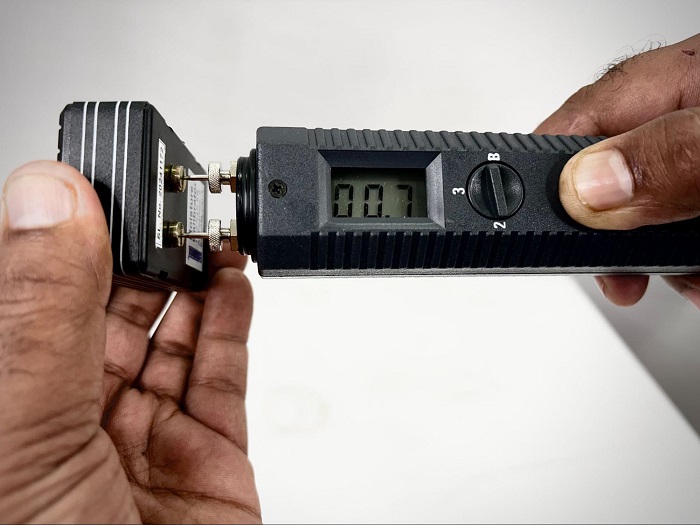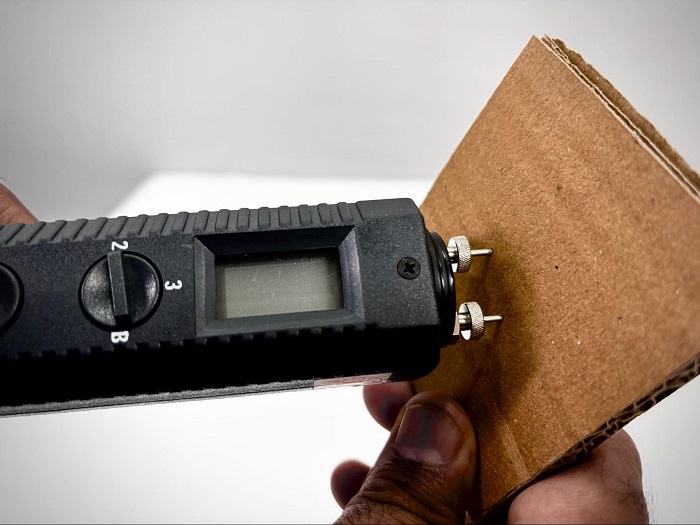Reviewed by Anurag Mishra (Sr. Technical Consultant)

Alright, on to moisture meters. Chances are you've heard of them, perhaps even seen one floating around, but ever really stopped to consider just how cool they really are? Well, if ever you asked yourself how professionals know if this piece of wood, this concrete, or this drywall is too wet or too dry with just a tiny little device, then you're in luck because you're going to learn everything there is to know about moisture meters from A to Z. Now, we go into what moisture meters are, how they work, and why it is important.
First things first
Imagine you're renovating your home and putting in new wooden floors. They look perfect, but after some months, the floors begin to warp. What happened? Perhaps the wood contained too much moisture. That's precisely what a moisture meter may help you avoid.
A moisture meter is one apparatus that measures the moisture content in any material. It proves useful to many businesses, such as woodwork, agricultural, and construction-based ones.
Moisture meters help professionals know how much water content is there in a material so that it can avoid complications like warping, cracking, and mold growth.
Now envision pin-type moisture meters as vampires of the tool world that feed on wood, drywall, or concrete with two sharp pins. This is how they work, once inserted into the material, the meter measures the resistance between the pins by electricity. The more moisture there is, the less resistance it encounters in the way of resistance. The device puts out this information to you through the amount of wetness the material has.

It is a very simple, quite effective method.
Okay, let's go all techy here for a second. No sweat, We'll keep it fun. The magic of moisture meters is in how they measure electrical resistance or capacitance.
When you're placing the pins into the wood or drywall, that's when the moisture meter starts to send an electric current between the two pins. The more water present, the easier it is for the current to flow. When the material isn't wet, it's difficult for the current to make its way from one pin to the other, and the device registers a low moisture reading. It's a pretty cool application of physics that's kept professionals from having to wade through water damage for decades.

Did you just think, "Do I really need one of these?" Well, if you are in the construction business, work with wood, or farm, or if you just like to try to fix things around the house in your spare time, then a moisture meter will certainly save you hours of wasted time, money, and grey hair.
Imagine this: Your customer wants you to build a deck in his backyard. You've just purchased all of the wood, but something in the back of your head makes you want to double-check. So pull out that trusty moisture meter that has made you such a pain. Sure enough, you get there and find out that the wood is at 22% moisture, which is way too high. Had you gone ahead and built that deck with that particular wood, that would have been a real mess in a few months.
Instead, you let the wood dry out properly until it is at a more manageable level of 12% moisture. Crisis averted, and now you can deliver a good quality deck and your customer can enjoy it without any unfortunate surprises!
Let's clear up some common questions that pop up about moisture meters:
It works by inserting probes, or a sensor, into a material to detect the moisture level inside. When it has made contact with the material, the meter will have a digital or analog reading of the content.
For woods, above 20% moisture is usually a problem. For drywall, keep that below 5%. Of course, these numbers can vary depending on the material and may have recommendations from manufacturers.
Yes! There are moisture meters specifically designed for soil and plant care. This is helpful in knowing when exactly you have to water your plants. Too much of it causes root rot while too little dries up the plants.
And that's basically it! You always wanted to know about moisture meters, right? Whether you're a pro or simply someone who likes doing it yourself, this is the gadget that can save you headaches down the line. Nearly as if you get superpowers-you might not see through walls, but you sense that moisture is hiding somewhere within. How cool, right?
The next time you are working with wood, drywall, or concrete, give these materials a quick once-over with a moisture meter. You'll be glad you did this, that’s our promise.